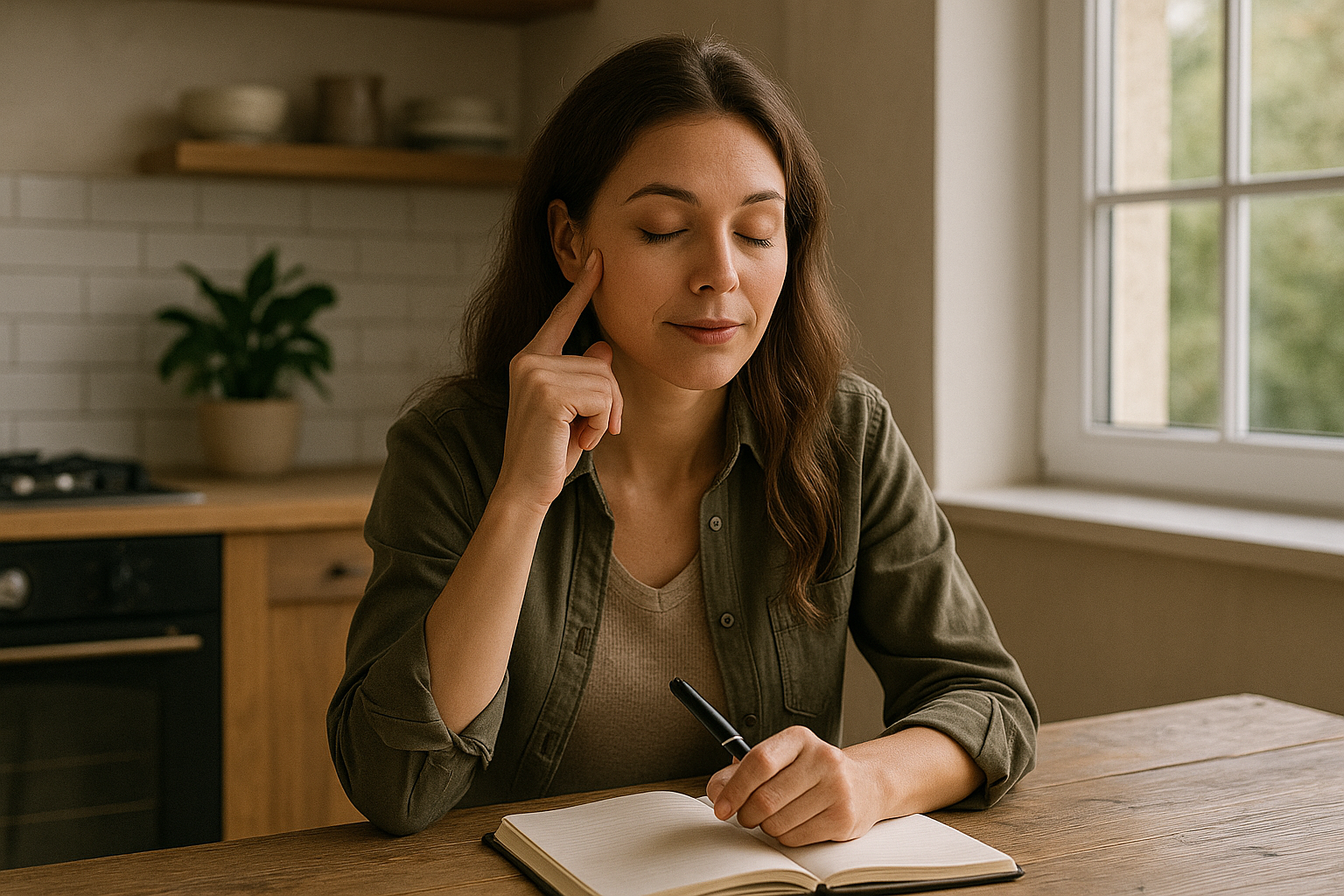Intuition vs Anxiety: How to Tell the Difference
Learn the difference between intuition vs anxiety. Discover psychic insights, practical tips, and tarot reading for clarity to trust your inner guidance.
Many people struggle to know if they’re being guided by intuition or overwhelmed by anxious thoughts. The line between intuition vs anxiety often feels blurred, especially during stressful times or within relationships. You may sense a gentle nudge in one direction, yet a louder fear pulls you elsewhere.
The key is learning the difference between intuition and anxiety so you can trust which voice to follow. Psychic readers often help with recognising intuition, offering insight that separates calm guidance from fear-driven thoughts. This support can bring greater peace of mind and a clearer path forward.
What Is Intuition?
Intuition is often described as a quiet inner knowing, a sense that seems to arrive without overthinking or heavy analysis. Unlike anxious thoughts that feel scattered or rushed, intuition tends to bring a calm and steady pull in one direction. Many people explain it as a gut feeling, yet it could also appear as a gentle thought, a recurring sign, or a sense of peace when making a choice.
From a spiritual perspective, intuition is sometimes seen as guidance from your higher self or even messages from the spirit world. With practice, it becomes easier to start recognising intuition because it usually feels light and grounding, rather than tense or urgent. Psychics often talk about intuition as a quiet nudge that encourages trust, even when logic hasn’t fully caught up yet.
What Is Anxiety?
Anxiety is often rooted in fear and survival instincts, and it usually shows up as racing thoughts or a restless feeling in the body. Unlike the steady calm of intuition, anxiety tends to loop, repeating the same worries over and over until it feels overwhelming. It can appear as a constant “what if” voice that never quite settles, no matter how many times you try to reassure yourself.
From a psychological point of view, anxiety is the mind’s way of preparing for danger, even if no real threat is present. This makes it tricky to spot the difference between intuition and anxiety, because both feel persuasive. Yet where intuition guides gently, anxiety usually pushes forcefully, leaving you more unsettled than before. Learning how to tell intuition from anxiety is the first step toward finding calm clarity.
Key Differences Between Intuition vs Anxiety
It can be tricky to tell them apart, but some clear signs make the difference between intuition and anxiety easier to spot. Think of it this way: one feels like a guide, the other like a warning siren. Here are some useful comparisons:
- Tone – Intuition feels calm, gentle, and reassuring. Anxiety feels tense, loud, and demanding.
- Speed – Intuition tends to arrive slowly and steadily. Anxiety rushes in fast and repetitively.
- Emotional impact – Intuition usually brings relief or clarity. Anxiety leaves you unsettled and doubtful.
- Direction – Intuition points you forward with a sense of trust. Anxiety pulls you back into cycles of fear.
Noticing these patterns can help with recognising intuition and understanding when thoughts are simply intuitive feelings vs fear.
How Psychics Explain Intuitive Feelings

Psychics often describe intuition as a soft whisper rather than a shout. It’s that subtle nudge you feel again and again, guiding you gently without force. Unlike the repetitive cycle of worry that anxiety creates, intuition tends to repeat itself in a way that feels calm, steady, and reassuring. Many readers see it as your inner self, or even spiritual energy, sending signals to help you trust your path.
From a psychic perspective, intuition rarely feels heavy or panicked. Instead, it carries a sense of quiet certainty, even if you can’t explain why. People who seek psychic guidance for intuition often learn that their gut feelings already hold the answers — they just need support in tuning out fear. Over time, this kind of guidance helps with recognising intuition and strengthening trust in your own inner compass.
Practical Ways to Recognise Intuition
Trusting intuition takes practice, but small steps make it easier. Grounding exercises, like deep breathing or walking in nature, help quiet anxious thoughts so inner guidance can surface. Journaling often highlights patterns, showing how intuitive feelings vs fear appear differently — one feels calm and steady, the other restless.
Meditation builds awareness, giving space to hear that quiet voice more clearly. Many people also find a tarot reading for clarity reassuring, as it reflects what intuition has already been hinting at. Over time, these practices make recognising intuition feel more natural and dependable.
Signs You May Be Experiencing Anxiety Instead
Anxiety can sometimes disguise itself as intuition, but the signs are different. Unlike the calm tone of intuitive feelings, anxiety often triggers physical tension such as a racing heart, shallow breathing, or restlessness. Thoughts may spiral into endless “what ifs,” leaving you drained instead of reassured.
Intuition tends to ease fear, while anxiety magnifies it. If your inner voice feels panicked, pressured, or impossible to quiet, it’s likely anxiety rather than guidance. A psychic reading can bring reassurance, but if symptoms feel overwhelming, seeking professional support is just as valuable for balance and peace of mind.
When to Seek Guidance from a Psychic Reading
There are times when intuition feels clouded by anxious thoughts, and that’s when a psychic reading can bring gentle clarity. Many people turn to psychics for reassurance, especially when they’re unsure if their feelings are intuitive guidance or fear-driven worry. A reading offers space to pause, reflect, and receive insight that can help untangle inner confusion.
Psychics often use tools such as tarot to shine a light on patterns you may not see yourself. A tarot reading for clarity can highlight where your intuition is quietly guiding you, offering reassurance that anxiety alone cannot provide. This kind of support doesn’t replace professional care if anxiety feels unmanageable, but it does create room for hope and understanding.
Telling the difference between intuition and anxiety isn’t always simple, but there are gentle signs that can guide you. Intuition is calm, steady, and quietly supportive, while anxiety feels urgent, repetitive, and fear-driven. By practising grounding techniques, journaling, or seeking a tarot reading for clarity, you can start recognising intuition more easily and trusting where it leads you.
For moments when anxious thoughts cloud your judgement, a psychic can offer emotional clarity and psychic support, helping you connect with the guidance already within you. If you feel ready to explore this further, reach out to Psychic Sofa and contact us for guidance.
Submit A Comment
Create a Psychic Sofa account today!
Join the Psychic Sofa Community Today and get access to:
- Get notified by (FREE) SMS text when a reader becomes available!
- Latest offers and members only exclusives
- Add favourite readers to your profile




Comments
No comments have been made yet